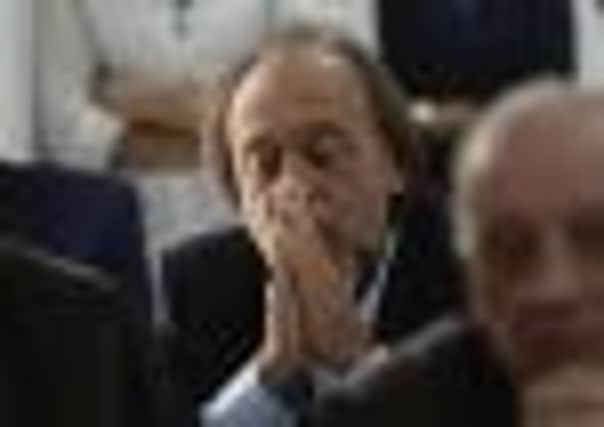Experts sentenced to 6 years for failing to predict earthquake


The court sitting in L’Aquila yesterday also sentenced the accused to six years in prison. Each one is a member of the National Commission for the Forecast and Prevention of Major Risks. Scientists worldwide had decried the trial as ridiculous, contending that science has no reliable way of predicting earthquakes.
Among those convicted were some of Italy’s most prominent and internationally respected seismologists and geological experts, including Enzo Boschi, the former head of the national Institute of Geophysics and Volcanology (INGV).
Advertisement
Hide AdAdvertisement
Hide Ad“I am dejected, desperate,” Mr Boschi said after the verdict. “I thought I would have been acquitted. I still don’t understand what I was convicted of.”
“This is a historic sentence, above all for the victims,” said lawyer Wania della Vigna, who represents 11 plaintiffs, including the family of an Israeli student who died when a student residence collapsed on top of him.
“It also marks a step forward for the justice system, and I hope it will lead to change, not only in Italy but across the world,” she said.
The case has drawn wide condemnation from international bodies, including the American Geophysical Union, which said the risk of litigation might deter scientists from advising governments, or even working to assess seismic risk.
The trial began in September 2011 in the Apennine town, whose devastated historic centre is still largely a ghost town.
The seven were accused in the indictment of giving “inexact, incomplete and contradictory information” about whether small tremors felt by L’Aquila residents in the weeks and months before the quake on 6 April, 2009, should have constituted grounds for a quake warning.
The 6.3-magnitude quake killed 308 people in and around the medieval town and forced survivors to live in tent camps for months.
Many much smaller earth tremors had rattled the area in the months before the quake, causing frightened people to wonder if they should evacuate.
Advertisement
Hide AdAdvertisement
Hide Ad“I consider myself innocent before God and men,” said another defendant, Bernardo De Bernardinis, a former official of the national Civil Protection agency.
Prosecutors had sought conviction and four-year sentences during the non-jury trial.
The seven also included Giulio Selvaggi, head of the INGV’s national earthquake centre in Rome; and Franco Barberi from Rome’s University Three.
The others scientists found guilty were Mauro Dolce, head of the Civil Protection’s seismic risk office; Gian Michele Calvi, head of the European centre of earthquake engineering; and Claudio Eva, from the University of Genoa.
The scientists are unlikely to be sent to jail pending a probable appeal trial.